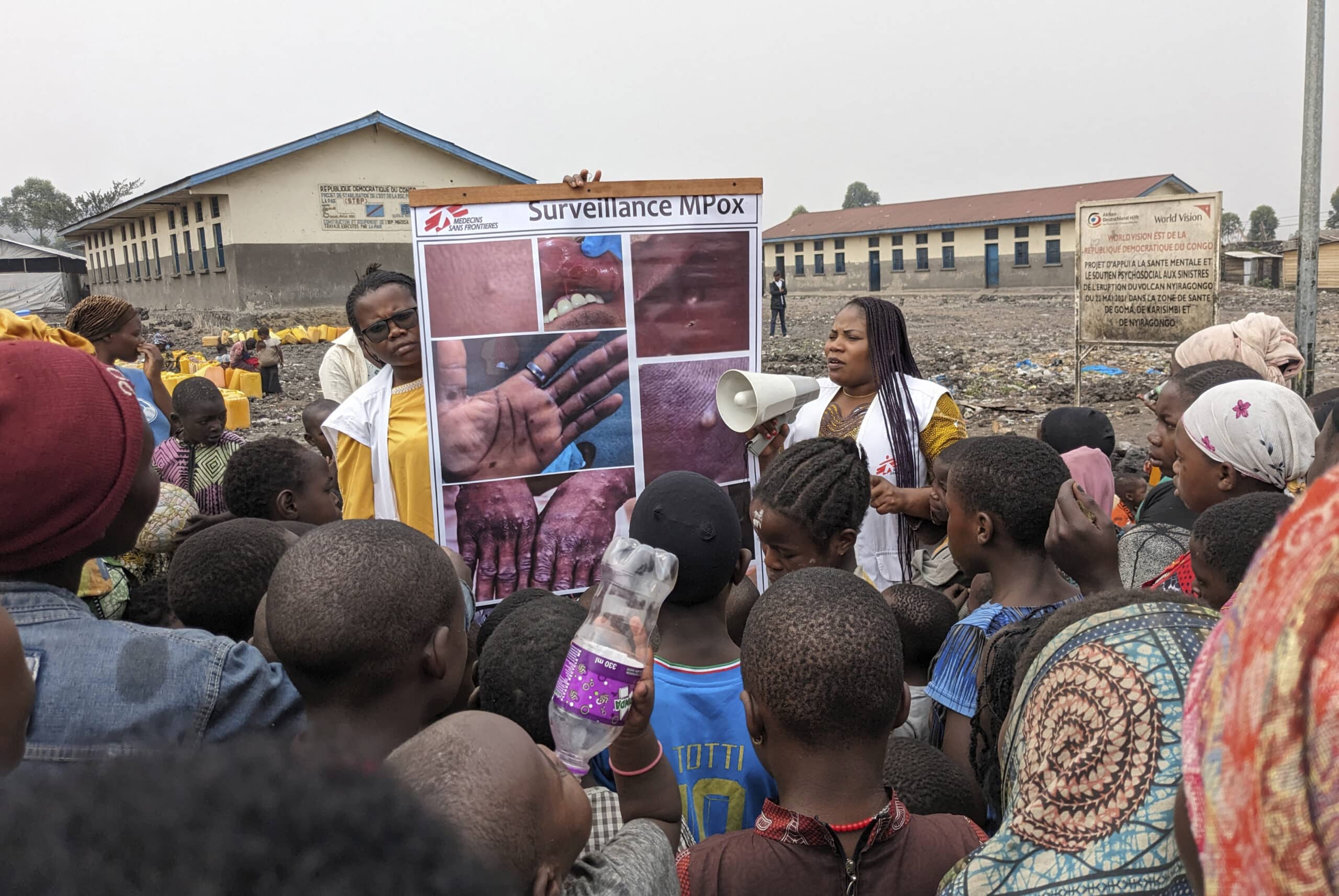Sweden, Pakistan report mpox cases amid WHO alert

This photo supplied by MSF (Doctors Without Borders) dated May 31, 2023, shows health workers educating children on the symptoms of the mpox disease in Goma, Congo. (Augustin Mudiayi/Doctors Without Borders/Médecins Sans Frontières via Associated Press)
STOCKHOLM/PESHAWAR—Sweden has announced its first case while Pakistan said it has at least three cases of the mpox virus, which the World Health Organization (WHO) on Wednesday declared a global public health emergency.
Sweden’s Public Health Agency (PHA) on Thursday confirmed that the virus strain found in “a person who had sought care” in Stockholm was the “Clade 1b subclade”—the same strain that has surged in the Democratic Republic of Congo (DRC) since last year and has so far killed 1,100 people.
State epidemiologist Magnus Gisslen said the infected patient recently visited a “part of Africa where there is a major outbreak” of that variant.
Close physical contact
“The fact that a patient with mpox is treated in the country does not affect the risk to the general population, a risk that the European Center for Disease Prevention and Control currently considers very low,” said PHA, which Gisslen heads.
Formerly called monkeypox, the virus was first discovered in humans in 1970 in the Congo.
Transmitted by infected animals, the virus can also be passed from human to human through close physical contact. The disease causes fever, muscular aches and pus-filled lesions.Mpox is a significant health problem, but so far, there is no evidence that it spreads through the air easily like COVID-19.
Nevertheless, the WHO on Thursday warned further imported cases of the Clade 1b subclade in Europe, saying that its “confirmation in Sweden is a clear reflection of the interconnectedness of our world.”
The WHO’s European regional office in Copenhagen said it was discussing with Sweden how best to manage the newly detected case.
READ: WHO declares mpox outbreaks in Africa a global health emergency
“Travel restrictions and border closures don’t work and should be avoided,” the United Nations health agency said, adding that “it is imperative that we don’t stigmatize travelers or countries [and] regions.”
Cases in Pakistan
Meanwhile, Pakistan’s health ministry on Friday confirmed one case of the mpox virus, while provincial health authorities reported they had detected three cases.
It was not yet clear whether the patient confirmed by the central health ministry was among the three.
A health ministry spokesperson said it was also not clear which variant of mpox its patient had until the sequencing process was complete.
In northern Khyber Pakhtunkhwa province, its health department said the cases it had detected were from patients who had arrived from the United Arab Emirates.
The WHO had said that it was concerned by the rise of cases and fatalities in DRC and the spread of the virus to Burundi, Kenya, Rwanda and Uganda.
‘Vaccination plan’
The UN health agency noted that there were 27,000 other mpox cases in the Congo alone. The country’s population is around 100 million.
In a video message, Health Minister Samuel-Roger Kamba said government-level working groups have been set up to boost contact tracing and help mobilize resources to “maintain control of this epidemic.”
He also said the government has put in place a “national strategic plan for vaccination against mpox,” besides improving surveillance of the disease at borders and checkpoints.
The US Department of Health said on Wednesday it would be “donating 50,000 doses of the Food and Drug Administration-approved JYNNEOS vaccine to DRC.”
And Danish drugmaker Bavarian Nordic said it was ready to produce up to 10 million doses of its vaccine targeting mpox by 2025.